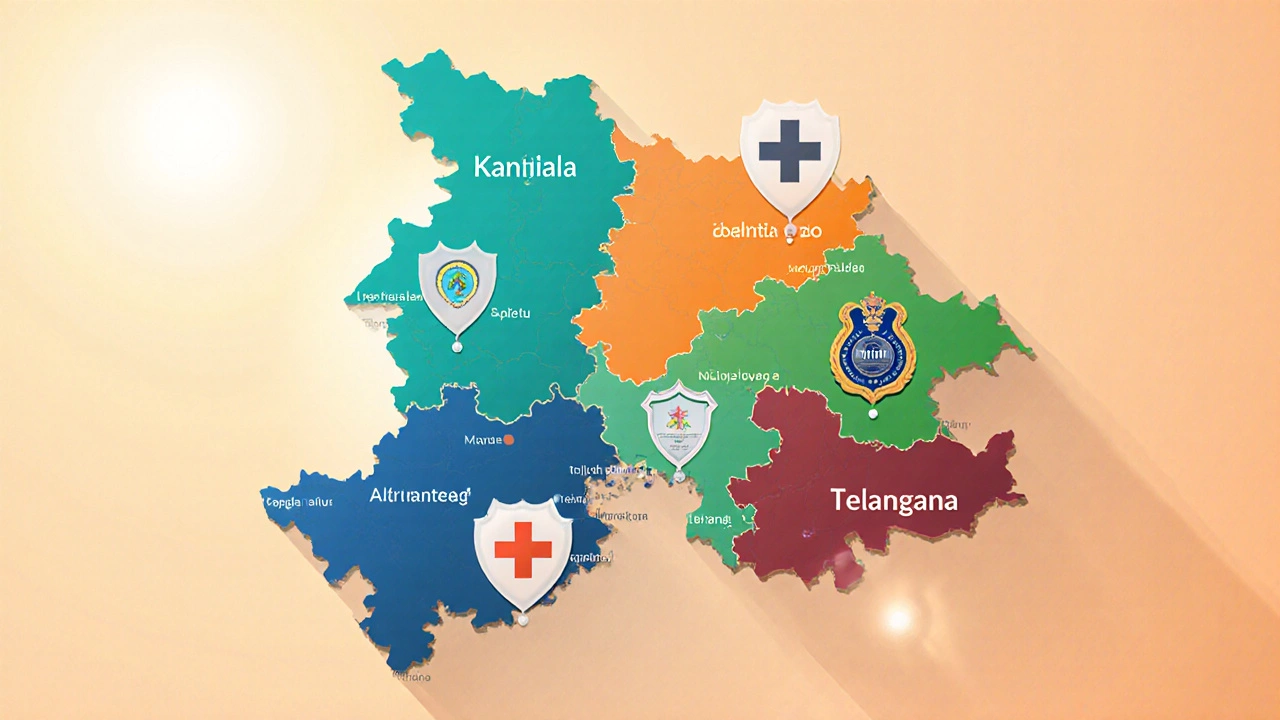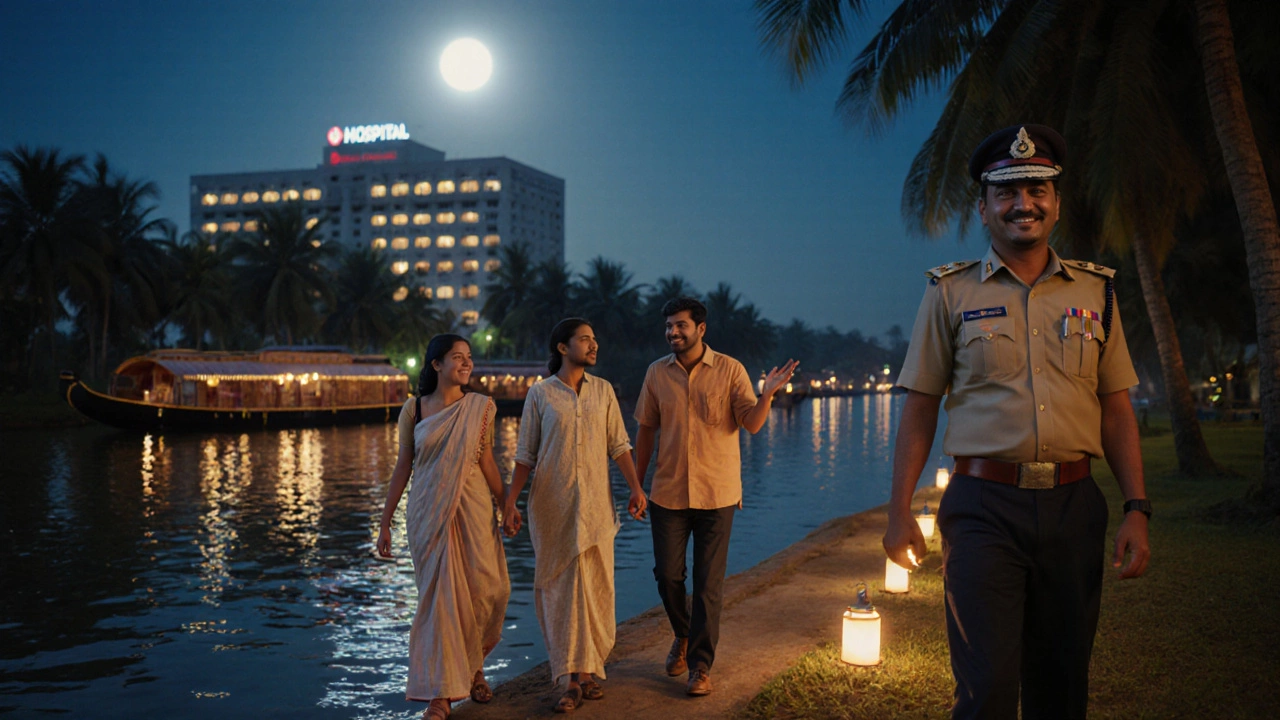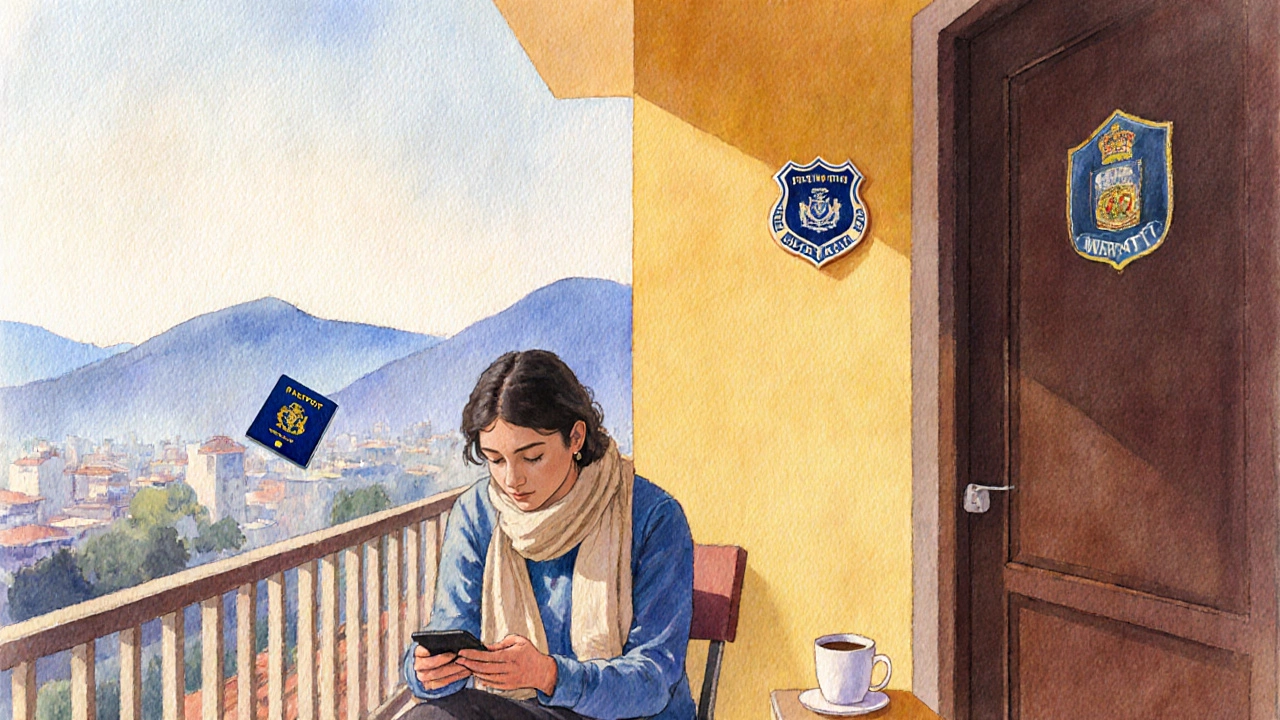Safest State to Visit in South India - 2025 Travel Safety Guide

South India Safety Score Calculator
Customize Your Safety Priorities
Adjust the weights below to reflect what matters most for your trip
Your Safety Rankings
When planning a South India is a culturally rich region that includes Kerala, Tamil Nadu, Karnataka, Andhra Pradesh, and Telangana, safety is often the first question on every traveler’s mind. Is it worth trusting a state’s police presence, health care, and road conditions? Below is a practical, data‑driven look at which state currently offers the most peace of mind for tourists.
Why safety matters more than ever
Travelers today expect instant information, quick emergency response, and reliable infrastructure. A single negative incident can turn a dream vacation into a nightmare, especially when you’re far from home. That’s why we rank states based on three pillars: crime rates, health‑care readiness, and traveler‑focused services (police patrols, tourist helplines, and safe transport options).
Our safety ranking method
- Crime data - sourced from the National Crime Records Bureau (NCRB) for 2023‑24, adjusted for tourist density.
- Health‑care index - hospital beds per 10,000 residents, emergency response times, and availability of English‑speaking doctors.
- Tourist‑service score - number of dedicated tourist police stations, 24‑hour helplines, and safe‑transport certifications.
Each pillar receives a weight (40% crime, 30% health, 30% services). Scores are normalised on a 0‑100 scale, then summed to produce a final safety rating.
State‑by‑state safety snapshot
Below is a quick look at the five South Indian states, each introduced with brief microdata for easy indexing.
Kerala is renowned for its high literacy rate, robust public‑health system, and extensive tourist‑police network. It scores 88/100, making it the top‑ranked state for safety.
- Crime rate: 2.1 per 1,000 tourists
- Hospital beds: 9 per 10,000 residents
- Tourist police stations: 18
Tamil Nadu is home to bustling metros and historic temples, with a mixed safety record. Overall score: 78/100.
- Crime rate: 3.4 per 1,000 tourists
- Hospital beds: 7 per 10,000 residents
- Tourist police stations: 14
Karnataka is known for its tech hubs and wildlife parks, with improving safety measures. Overall score: 74/100.
- Crime rate: 3.7 per 1,000 tourists
- Hospital beds: 8 per 10,000 residents
- Tourist police stations: 12
Andhra Pradesh is emerging as a coastal tourism hotspot, yet still catching up on safety infrastructure. Overall score: 69/100.
- Crime rate: 4.2 per 1,000 tourists
- Hospital beds: 6 per 10,000 residents
- Tourist police stations: 9
Telangana is a newer state with a focus on urban development, but its safety record lags behind its neighbours. Overall score: 65/100.
- Crime rate: 4.5 per 1,000 tourists
- Hospital beds: 5 per 10,000 residents
- Tourist police stations: 8

Side‑by‑side comparison
| State | Crime Rate (per 1,000 tourists) | Hospital Beds per 10,000 | Tourist Police Stations | Overall Safety Score |
|---|---|---|---|---|
| Kerala | 2.1 | 9 | 18 | 88 |
| Tamil Nadu | 3.4 | 7 | 14 | 78 |
| Karnataka | 3.7 | 8 | 12 | 74 |
| Andhra Pradesh | 4.2 | 6 | 9 | 69 |
| Telangana | 4.5 | 5 | 8 | 65 |
Who should choose which state?
Kerala shines for families and solo travelers who want a hassle‑free experience. Its well‑maintained roads, English‑friendly staff, and 24‑hour tourist police make night outings feel safe.
Tamil Nadu works best for culture enthusiasts who don’t mind slightly higher crowds; major temples have dedicated security teams.
Karnataka appeals to adventure seekers heading to Coorg or Bandipur-its wildlife reserves now have trained rangers and quick‑response units.
If you’re after pristine beaches with fewer tourists, Andhra Pradesh’s emerging coastal stretches like Vizag can be rewarding, provided you stay in certified resorts that offer on‑site safety coordinators.
Telangana is ideal for business travelers visiting Hyderabad’s tech parks, where private security and corporate hospitals offset the lower public safety scores.

Practical safety tips for any South India trip
- Register your itinerary with the Indian embassy or consulate if you’re traveling from abroad.
- Carry a copy of your passport, not the original, when you’re out exploring.
- Use reputable ride‑hailing apps (Ola, Uber) that share driver details and route tracking.
- Stay in accommodations that display the "Tourist Police" badge-these venues have direct hotline numbers.
- Keep a small amount of cash and a separate card for emergencies; many places accept UPI payments, which add a layer of security.
- Learn a few basic phrases in Malayalam (Kerala), Tamil (Tamil Nadu), or Kannada (Karnataka) to communicate quickly with locals and officials.
By following these simple practices, you can enjoy the vibrant festivals, back‑water cruises, and hill‑station breezes of South India without worrying about safety.
Frequently Asked Questions
Is Kerala really the safest state for tourists?
Yes. Kerala tops the safety ranking thanks to its low crime rate, high hospital‑bed density, and the largest network of tourist police among South Indian states.
How do I contact tourist police in South India?
Most states have a dedicated 24‑hour helpline. For Kerala, dial 112 or the Kerala Tourism Police number 0471‑233‑1234. Tamil Nadu’s tourist police can be reached at 044‑276‑4000.
Do I need travel insurance for safety reasons?
Absolutely. A policy covering medical emergencies, evacuation, and personal belongings is essential, especially if you plan outdoor activities in Karnataka’s hills or Andhra’s coastal regions.
Are there any unsafe areas I should avoid?
While all five states are generally safe for tourists, it’s wise to avoid isolated night walks in poorly lit areas of big cities like Hyderabad (Telangana) or Chennai (Tamil Nadu) and to stay updated on local news during election periods.
Which state offers the best emergency medical facilities?
Kerala leads with the highest number of hospital beds per capita and several multi‑specialty hospitals in Kochi and Trivandrum that cater to international patients.